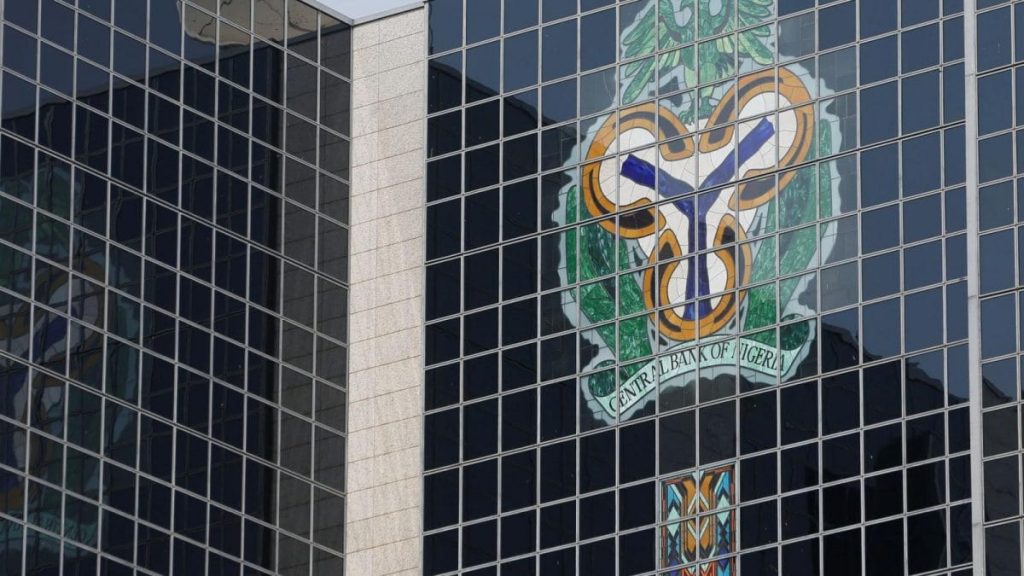CEM REPORT, FINANCE | The Central Bank of Nigeria (CBN), has disclosed that it will shift its attention from development financing initiatives and focus more on advisory roles on economic growth.
The apex bank also said that the economic policy proposals of President Bola Tinubu’s administration could achieve a Gross Domestic Product (GDP) of $1 trillion in 8 years.
According to the Governor of the Central Bank of Nigeria (CBN), Yemi Cardoso, the distinction between monetary policy and fiscal intervention should be made evident, noting that the CBN’s development funding programs should be scaled back in favour of more advising duties.
“Much had been made of past CBN forays into development financing, such that the lines between monetary policy and fiscal intervention have blurred.
“In refocusing the CBN to its core mandate, there is a need to pull it back from direct development finance interventions into more limited advisory roles that support economic growth.
Speaking on the sidelines of the ongoing 2023 World Bank/IMF Annual Meetings in Marrakesh, Western Morocco, Cardoso stressed that the CBN should act as a catalyst in the propagation of specialised institutions and financial products that support emerging sectors of the economy.
“It should facilitate new regulatory frameworks to unlock dormant capital in land and property holdings.
“A refocused CBN will better serve Nigeria through monetary policy interventions and advisory roles that sustain implementation of the administration’s fiscal proposals,’’ he added.
Additionally, Cardoso said for the administration to achieve a Gross Domestic Product (GDP) of $1 trillion in 8 years, efforts were ongoing to refocus the CBN towards overall economic growth noting that the administration is identifying fiscal changes and growth targets that would achieve the feat in eight years.
He stated that in an emerging market analysis, macroeconomic indexes pointed to Nigeria’s economic trajectory if the planned economic changes were faithfully implemented.
He said the study was conducted after looking at economies with similar populations and stages of growth to Nigeria, such as those of Mexico, Indonesia, Nigeria, and Turkey (MINT) and the BRICS (Brazil, Russia, India, China, South Africa).
Meanwhile, positive reactions have trailed the lifting of the ban on 43 items previously restricted from accessing Forex (FX) at the official market.
Reacting to the development, the Chief Executive Officer of the Centre for the Promotion of Private Enterprise (CPPE), Muda Yusuf noted that the decision will improve transparency and disclosures in foreign exchange transactions.
He stated that the exclusion of the items further contributed to the persistent divergence in rates between the official window and the parallel market.
“The exclusion of the 43 items was one of the several drivers of distortions in the forex market. The exclusion of the items also contributed to the persistent divergence in rates between the official window and the parallel market.
“The exclusion was also in conflict with extant trade policy as the items were not under import prohibition in the first place. It was an example of a lack of policy coordination under the previous administration. The new directive will also improve transparency and disclosures in foreign exchange transactions.”
He however warned that the CBN should avoid market suppression tendencies, especially outside the I and E window. All policy impediments to forex inflows should be removed.
“The fiscal authorities should continually monitor the economic landscape to shape the character of fiscal policy measures to regulate imports in line with comparative advantage principles. We need to worry about the risk of import surge.”
He noted that while the directive is a move in the right direction there is also a need to upscale the use of fiscal policy measures to boost domestic production and productivity.
According to Charlie Robertson, Head of Macro Strategy at U.K. based FIM Partners, the latest measures announced by the central bank are “another market-friendly step” to unify the exchange rates and ease pressure on the naira in the parallel market, where importers of the 43 items had to access dollars.
“There is still more to do. To reduce forex shortages in the official market, the CBN might also need to signal that commercial banks can offer a weaker naira rate for dollars, to help increase the supply of dollars,” Robertson added.
Recall a CEM report on the lifting of restrictions on 43 items restricted from accessing FX at the official market
The ban which covered items such as rice, cement and poultry, was imposed in 2015 as part of the unorthodox policies under former central bank Governor Godwin Emefiele to prop up the naira currency.
Emefiele to prop up the naira currency. In 2015 when the ban was imposed, Emefiele also said the would help conserve foreign reserves, facilitate the resuscitation of domestic industries and improve employment generation.
However, the reverse was the case as it birth a steady increase in prices of the items consequently increasing the cost of living as importers were forced to use the black market to bring in their goods. Domestic industries were also sent packing as many could not access funds to import the raw materials they needed to produce.
See the list of 43 items here.












